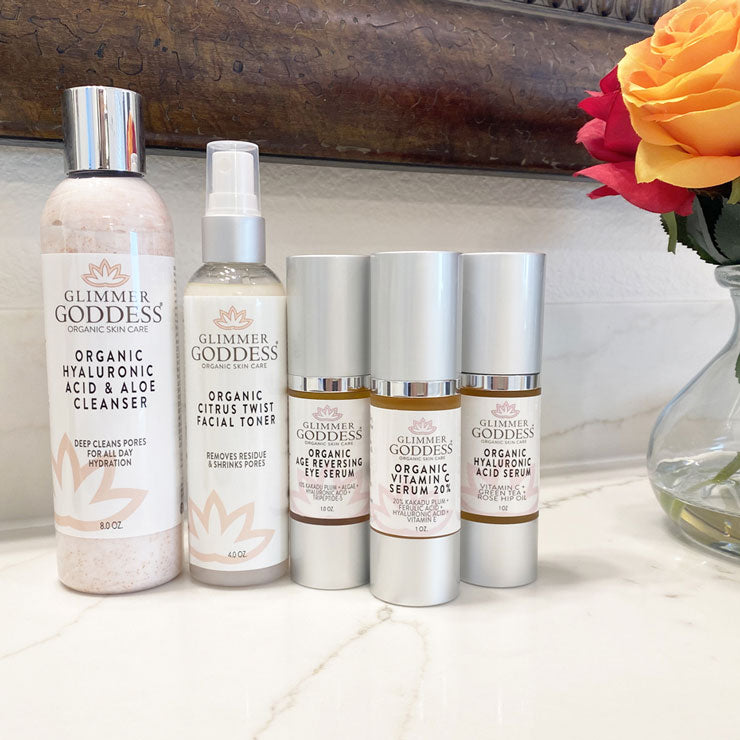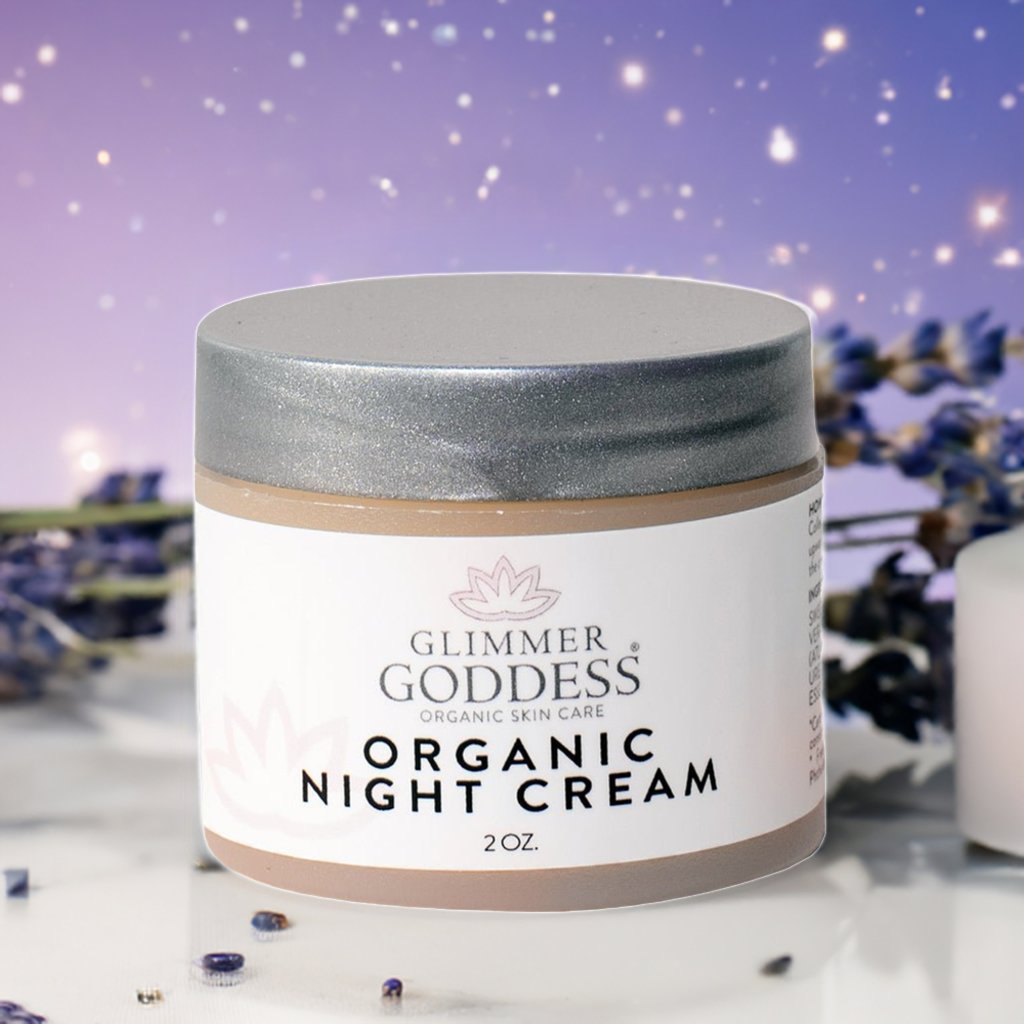
Unlock the Secret: How Coconut Oil Can Transform Your Skin for a Radiant Glow
Coconut oil has taken the skincare world by storm, celebrated for its multifaceted benefits. This natural powerhouse hydrates and nourishes the skin, while also exhibiting antimicrobial and anti-inflammatory properties. In this article, we will explore how coconut oil can transform your skin, addressing a variety of skin concerns while enhancing your natural glow.
The Incredible Skin Benefits of Coconut Oil
How Does Coconut Oil Benefit Skin Health?
Coconut oil has gained immense popularity in recent years as a versatile natural ingredient with a wide range of skin benefits. From its ability to hydrate and nourish the skin to its antimicrobial and anti-inflammatory properties, coconut oil has become a staple in many skincare routines.
Coconut oil is a natural emollient that can effectively moisturize and soften the skin.
- The fatty acids in coconut oil, such as lauric acid, can penetrate deep into the skin's layers, providing long-lasting hydration and preventing moisture loss.
- Coconut oil's ability to form a protective barrier on the skin's surface helps to seal in moisture, leaving the skin feeling soft, supple, and smooth.
- Regular use of coconut oil can improve the skin's overall appearance, reducing the appearance of fine lines, wrinkles, and other signs of aging.
What Are the Key Nutrients in Coconut Oil?
Coconut oil is rich in a variety of beneficial nutrients that contribute to its skin-nourishing properties.
Coconut oil is a natural source of medium-chain fatty acids, including lauric acid, capric acid, and caprylic acid.
- These fatty acids possess antimicrobial and anti-inflammatory properties, making coconut oil an effective natural treatment for various skin conditions.
- The fatty acids in coconut oil can also help to strengthen the skin's natural barrier, protecting it from environmental stressors and harmful bacteria.
- Coconut oil is also a rich source of vitamin E, a powerful antioxidant that can help to protect the skin from free radical damage and promote a youthful, radiant complexion.
Can Coconut Oil Help with Specific Skin Issues?
Coconut oil's versatility extends to its ability to address a wide range of skin concerns, from acne to eczema.
Coconut oil can be a valuable natural treatment for acne-prone skin.
- The antimicrobial properties of coconut oil can help to reduce the growth of acne-causing bacteria, such as Propionibacterium acnes.
- Coconut oil's anti-inflammatory effects can also help to soothe and calm inflamed, irritated skin, reducing the appearance of acne blemishes.
- For individuals with sensitive or eczema-prone skin, coconut oil can provide much-needed hydration and relief from dryness and itchiness.
- The nourishing fatty acids in coconut oil can help to repair the skin's protective barrier, alleviating the symptoms of eczema and other inflammatory skin conditions.
Incorporating coconut oil into your skincare routine can be a game-changer for your skin's health and appearance. Whether you're looking to hydrate, soothe, or address specific skin concerns, this versatile natural ingredient is a must-have in any beauty lover's arsenal.
Embracing the Versatility of Coconut Oil: Discover Its Remarkable Benefits
What Are Some Simple Ways to Use Coconut Oil?
Coconut oil has long been recognized as a versatile and beneficial natural product, with a wide range of applications beyond its culinary uses. As a wellness enthusiast, I'm eager to share some of the simple yet impactful ways you can incorporate coconut oil into your daily routine.
Coconut oil is a true multitasker, offering a wide array of benefits for your skin, hair, and overall well-being. Here are just a few of the many ways you can use this remarkable oil:
- Moisturizing your skin: Coconut oil is an excellent natural moisturizer, providing deep hydration and nourishment to your skin. Simply apply a small amount to your face, body, or hands, and let it soak in for a radiant, healthy glow.
- Taming frizzy hair: Coconut oil can work wonders in taming unruly, frizzy hair. Apply a small amount to the ends of your hair, focusing on the areas that tend to get the driest, to help smooth and control flyaways.
- Improving dental health: Coconut oil can be used for oil pulling, an ancient Ayurvedic practice that can help remove toxins and promote oral hygiene. Swish a tablespoon of coconut oil in your mouth for 15-20 minutes, then rinse with warm water.
Embracing the versatility of coconut oil can be a game-changer in your daily self-care routine. From moisturizing your skin to improving your dental health, this natural wonder can become a staple in your wellness arsenal.
Can Coconut Oil Be Used as a Makeup Remover?
As a makeup enthusiast, I'm always on the lookout for effective and gentle ways to remove my makeup at the end of the day. Coconut oil has emerged as a surprising yet highly effective solution in this regard.
Coconut oil can be an excellent natural makeup remover, offering several benefits:
- Effectively removes makeup: Coconut oil is particularly effective at breaking down and dissolving various types of makeup, including long-lasting and waterproof formulas.
- Gentle on the skin: Unlike some harsh commercial makeup removers, coconut oil is a gentle and nourishing option that won't strip your skin of its natural oils.
- Moisturizing properties: As you remove your makeup with coconut oil, your skin will be left with a healthy, hydrated glow, thanks to the oil's moisturizing properties.
- Versatile application: You can use coconut oil as a makeup remover in a variety of ways, such as applying it directly to your face, using a cotton pad, or even mixing it with a small amount of water to create a cleansing emulsion.
Incorporating coconut oil into your makeup removal routine can be a game-changer, providing a gentle, effective, and nourishing way to cleanse your skin while leaving it soft, supple, and radiant.
How to Choose the Right Coconut Oil for Your Skin Type?
With the growing popularity of coconut oil, it's important to understand that not all coconut oils are created equal. Selecting the right type of coconut oil for your skin can make a significant difference in its effectiveness and compatibility.
When it comes to choosing the right coconut oil for your skin type, consider the following factors:
- Refined vs. unrefined: Unrefined, or virgin, coconut oil is minimally processed and retains more of the natural nutrients and antioxidants. This makes it a better choice for sensitive or acne-prone skin. Refined coconut oil, on the other hand, may be more suitable for those with drier skin types.
- Organic vs. non-organic: Opt for organic coconut oil to ensure it's free from pesticides and other harmful chemicals that could potentially irritate your skin.
- Solid vs. liquid: Coconut oil can be found in both solid and liquid forms, depending on the temperature. Solid coconut oil may be better suited for dry skin, while liquid coconut oil can be more easily absorbed by oily or combination skin types.
- Melting point: Consider the melting point of the coconut oil, as this can affect its consistency and ease of use. Coconut oil with a lower melting point may be more convenient for application, especially during colder months.
By taking the time to select the right coconut oil for your unique skin type, you can maximize the benefits and ensure a harmonious integration of this versatile natural ingredient into your skincare routine.
The Truth About Coconut Oil: A Comprehensive Guide to Skin Safety
Is Coconut Oil Safe for All Skin Types?
Coconut oil has become a popular natural ingredient in skincare products, but its suitability for different skin types is a subject of ongoing debate. While some individuals swear by its moisturizing and nourishing properties, others have reported adverse reactions.
Examining the Benefits and Drawbacks of Coconut Oil for Skin
- Coconut oil is rich in fatty acids, which can provide deep hydration and nourishment to the skin.
- It is believed to have antimicrobial and anti-inflammatory properties, making it potentially useful for addressing skin concerns like acne and eczema.
- However, coconut oil is also known to be comedogenic, meaning it can clog pores and lead to breakouts, especially for those with oily or acne-prone skin.
- Some individuals may also experience allergic reactions or sensitivity to coconut oil, leading to irritation, redness, or even a worsening of existing skin conditions.
What Are the Possible Side Effects of Coconut Oil?
While coconut oil is generally considered safe for topical use, it's essential to be aware of the potential side effects that some individuals may experience. Understanding these potential drawbacks can help you make an informed decision about incorporating coconut oil into your skincare routine.
Exploring the Potential Risks of Using Coconut Oil on the Skin
- Clogged pores and acne breakouts: Coconut oil's comedogenic nature can lead to the blockage of pores, particularly for those with oily or acne-prone skin.
- Skin irritation and allergic reactions: Some people may have an allergic or sensitivity response to coconut oil, leading to redness, itchiness, or a worsening of existing skin conditions.
- Greasiness and heavy feel: Coconut oil can leave a heavy, greasy residue on the skin, which may not be desirable for individuals with already oily or shiny complexions.
- Exacerbation of certain skin conditions: For those with pre-existing skin conditions like eczema or rosacea, coconut oil may potentially worsen the symptoms or cause further irritation.
How to Patch Test Coconut Oil Before Full Use?
Before incorporating coconut oil into your skincare routine, it's crucial to perform a patch test to ensure your skin can tolerate the ingredient. This simple process can help you avoid any adverse reactions and ensure your skin's safety.
Conducting a Proper Patch Test for Coconut Oil
- Choose a small, inconspicuous area of your skin, such as the inside of your forearm or behind your ear, to apply a small amount of coconut oil.
- Apply a pea-sized amount of coconut oil to the selected area and observe the skin for any signs of irritation, redness, or sensitivity over the next 24-48 hours.
- If you experience any adverse reactions, discontinue use and avoid applying coconut oil to your skin.
- If there are no negative reactions, you can proceed with incorporating coconut oil into your skincare routine, but continue to monitor your skin for any changes.
Ultimately, the safety and suitability of coconut oil for your skin depend on your individual skin type and sensitivity. By understanding the potential benefits and drawbacks, and taking the necessary precautions through a patch test, you can make an informed decision about whether coconut oil is the right choice for your skin.
Q&A
What are the main benefits of using coconut oil on skin?
Coconut oil provides deep hydration, softens the skin, improves overall appearance by reducing fine lines, and has antimicrobial properties that help treat acne and inflammation.
Can coconut oil help with acne-prone skin?
Yes, coconut oil's antimicrobial properties combat acne-causing bacteria, while its anti-inflammatory effects can soothe and calm irritated skin.
Is coconut oil suitable for all skin types?
Coconut oil may not be suitable for oily or acne-prone skin as it is comedogenic and can clog pores. It's best to patch test it on sensitive areas first.
How can I use coconut oil as a makeup remover?
Coconut oil effectively breaks down makeup, including waterproof formulas. Apply it directly to your face and wipe away with a cotton pad, leaving your skin moisturized.
What type of coconut oil should I choose for my skincare?
Opt for unrefined, organic coconut oil for maximum nutrient preservation. Avoid refined versions if you have sensitive or acne-prone skin.
How do I perform a patch test for coconut oil?
Apply a small amount of coconut oil to an inconspicuous area like your forearm. Observe for any irritation over the next 24-48 hours before full use.
Incorporating coconut oil into your skincare routine can work wonders for the health and appearance of your skin. Whether you're battling dryness, acne, or looking to enhance your overall glow, this versatile ingredient offers a natural solution. Remember to choose the right type for your skin and perform a patch test to ensure its safety. Say goodbye to harsh chemicals and embrace the nourishing power of coconut oil!








